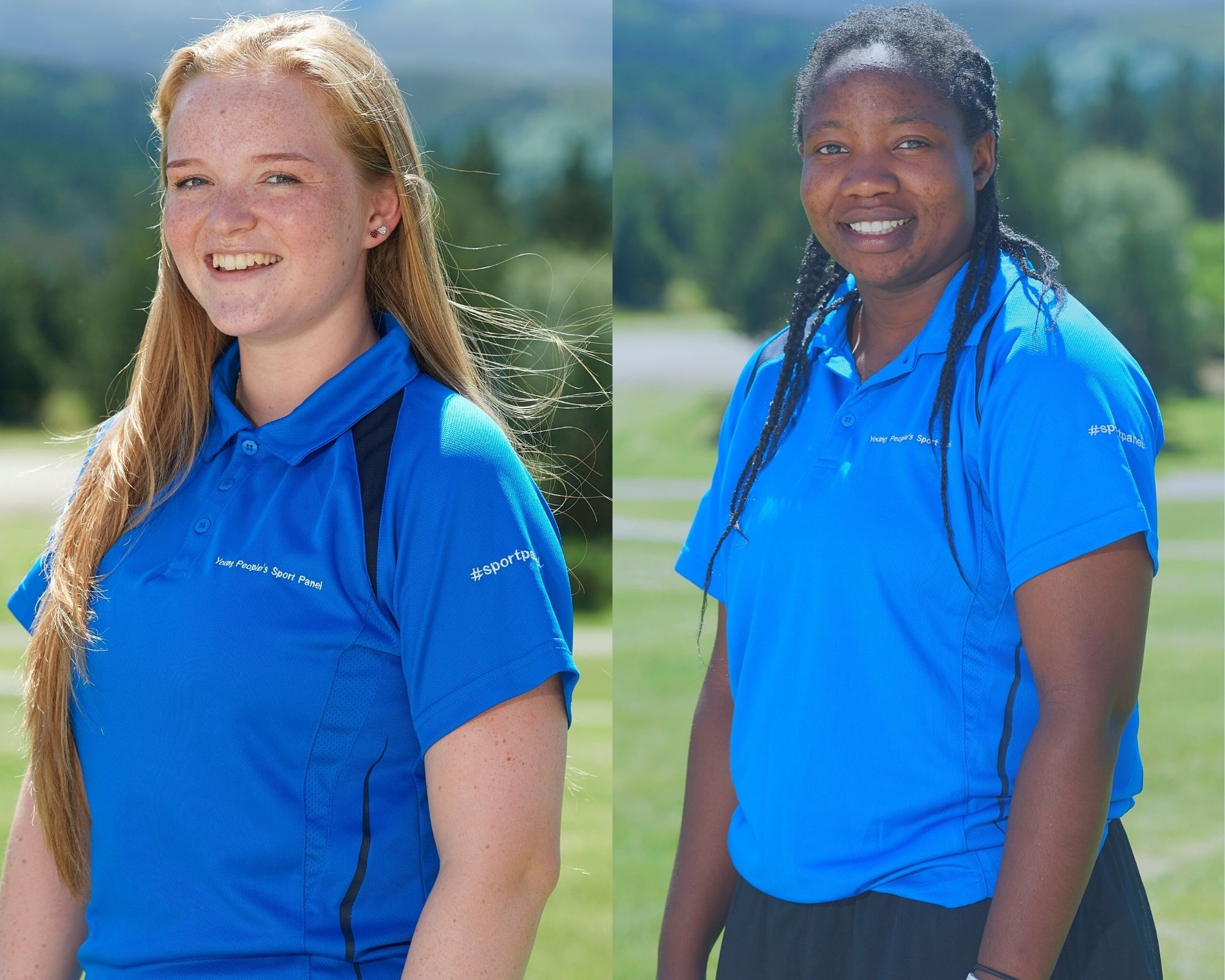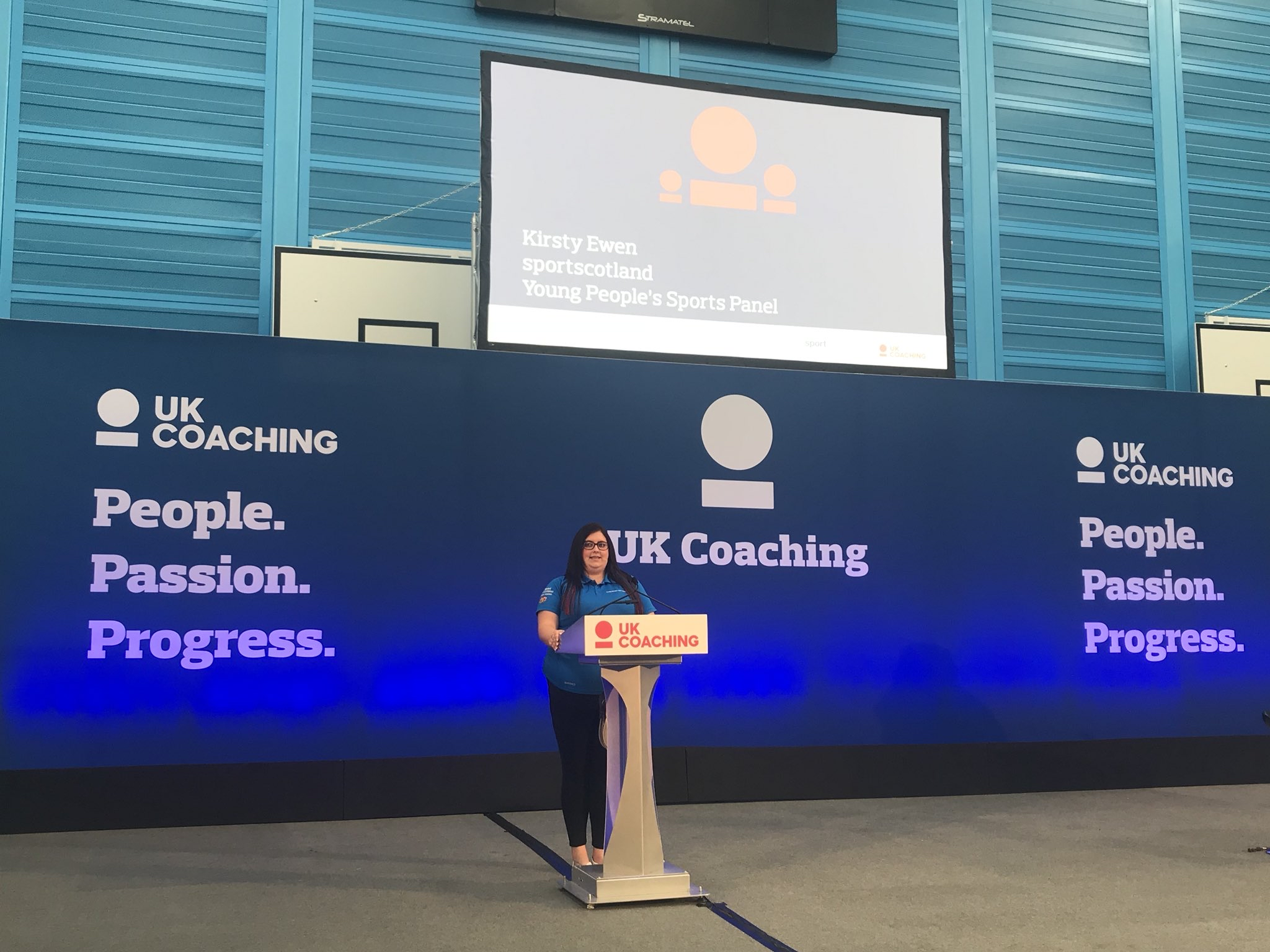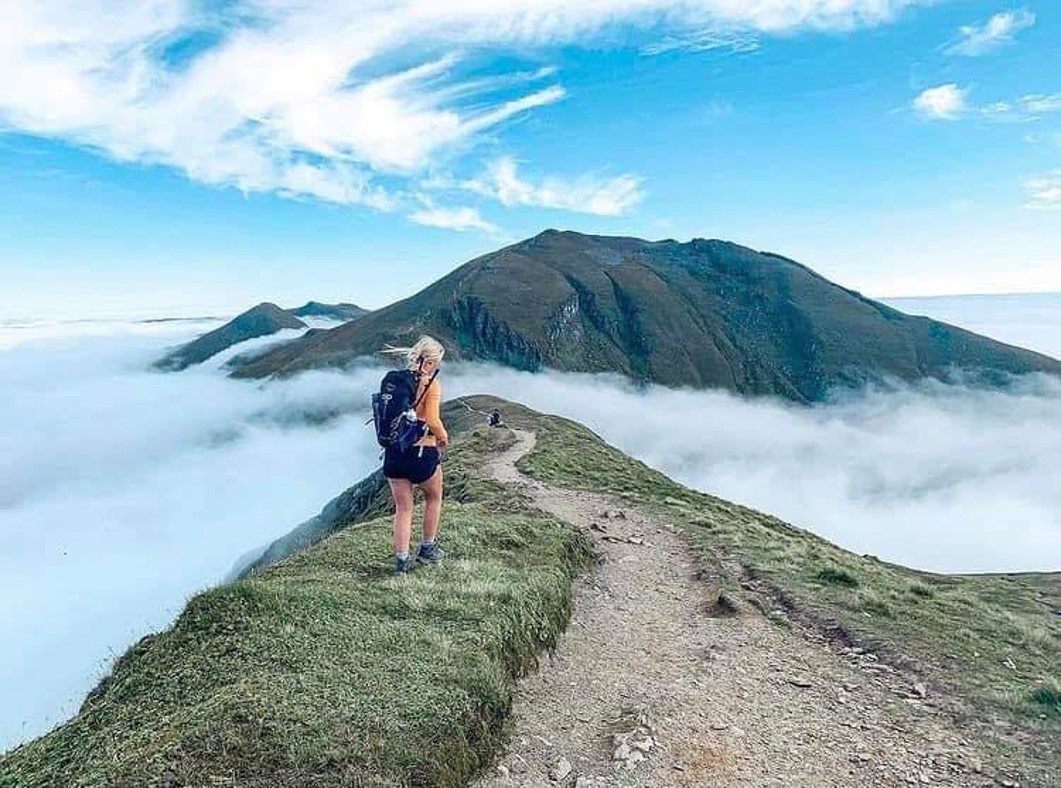Nicola McDonald and Panashe Muzambe were 21 and 24 respectively when Coronavirus (COVID-19) was declared a pandemic.
Like all young adults, their busy personal and professional lives were interrupted when the first national lockdown was imposed.
One source of continuity, reassurance and focus at this confusing time was their shared membership of the Young People’s Sport Panel (YPSP).
Panashe, a community sport hub leader and trainee teacher, recalled: “I’d just finished the first year of my Masters and I’d been put on furlough so I really looked forward to the Sport Panel meetings.
“I had a lot of time on my hands and it was the only element of social interaction I had during the day.”
Nicola, who has graduated with a degree in International Sports Management and works for Scottish Sport Futures, said: “I’d finished my university course and I was doing some part-time work online, but I felt a bit lost, and being on the panel kept me busy and kept me going.”
Led by sportscotland and supported by Young Scot, the YPSP is designed to represent the voice of young people across Scotland. It gives panellists the chance to shape and influence sport in Scotland and raise the profile of sport.

Support
Nicola and Panashe felt they had an opportunity to support age-group peers around the country, especially by helping them to improve the mental health through physical activity. But it wasn’t immediately clear how to communicate this message effectively.
Nicola reflected: “At the beginning we jumped on the bandwagon of doing challenges, like throwing and catching a toilet roll and clapping as many times as you could while it was in the air. We got a little bit of pick-up on social media, but probably less than we were used to.
“At the time, all the Active Schools teams and sports clubs and national governing bodies were sending things out, and Joe Wicks was doing his thing, and we asked ourselves: ‘How can we do something unique?’”
It was in May that the panel started brainstorming with the Scottish Association for Mental Health (SAMH) – and together they came up with a stunningly simple way to spread their message online.
Walk And Talk was born.
Panashe recalled: “We were brainstorming about what we could do, and the whole challenge thing was fizzling out. As a group we came up with Walk And Talk and I think we all bought into it straight away.
“The idea was fantastic – I can’t fault it! It was really important at that time for people to cut down on their screen time, and this was an easy way to do it.”
Nicola added: “People were allowed to go outside for one hour a day, and this was especially vital for people living in flats who maybe didn’t have gardens. The other thing the Scottish Government was pushing was to stay connected, so we just thought it made sense to put the two together.

“It was something simple, and if you had a phone there was probably a chance that one of your friends at work or at school had the same break and there was nothing stopping you from having a wee call while going for a walk.
“I saw people doing it everywhere from Shetland to the Borders. Active Schools coordinators were able to target people who weren’t following us on social media, and that created a trickle effect.
“With the simple hashtag, in the first month we were bombarded with people doing it, which was really sweet.”
The popularity of Walk And Talk spread beyond sport and the idea was adopted by some NHS Hubs as the mental health benefits of physical activity became more widely publicised amid a public health emergency.
And it wasn’t the final act of Nicola and Panashe in the fourth cohort of the #SportPanel – they were asked to extend their stint by three months while the fifth cohort was assembled via a virtual recruitment process.
Helping the next generation
Nicola was even selected to return alongside Erin Gillen to help guide the new generation of panellists through the early phase – with all meetings taking place online. This experience helped her gain increased confidence going into the workplace – and she was duly recruited for a full-time role with Scottish Sports Futures starting in June 2021.
She said: “Being involved in a different way and planning things for the new panel gave me new skills like coordinating and managing, which really helped when I was applying for jobs.”
Zimbabwe-born Panashe, who has the distinction of being the first black female to represent Scotland at rugby, reflected: “When I started on the panel I knew it was going to be tough to balance everything with being on placement, university and rugby.
“Now I’m sitting on the other side feeling a huge sense of pride that I’ve been able to get through it – but you don’t get through things like that on your own.
“It’s the support network and looking forward to chatting with people online and switching off, and things like #WalkAndTalk, all these small things accumulate to that success at the end of the day.”
Find out more
About Playing Our Part 2021
About the Young People's Sport Panel and SAMH.
Follow the hashtag #PlayingOurPart21



